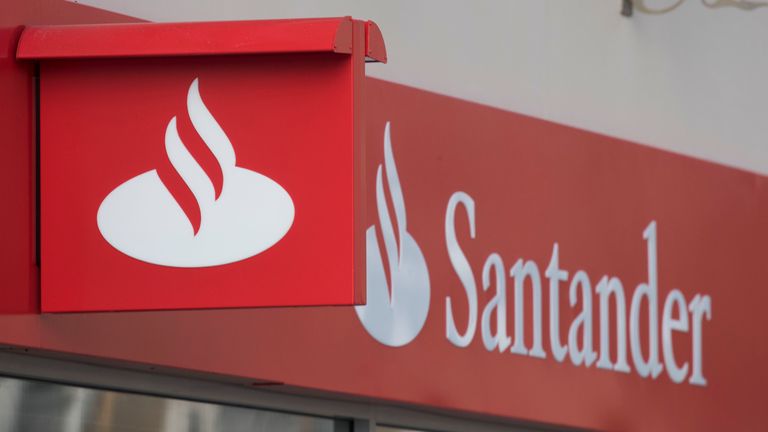Two news announcements, fewer than 72 hours apart, paint a picture of the current state of play in the UK's banking sector.
Firstly, on Friday evening after stock market trading had concluded for the week, Metro Bank announced it had sold a portfolio of mortgages worth £3bn to NatWest Group for £3.1bn.
Then, this morning, it was confirmed the Co-operative Bank is no longer in takeover talks.
The two announcements may appear on the face of it not to have too much in common but what they both highlight is how hard it is to be a challenger bank in the UK.
Not so long ago, hopes were high that the hegemony of the "big four" - Lloyds, Barclays, HSBC and NatWest - might be ended.
There were hopes that a rash of new players in the fintech space might eat away at the big four's dominance of current accounts.
There were hopes that the dominance of the four might also be eroded, in particular, by greater competition in the field of business banking - partly due to the pot of cash that Royal Bank of Scotland was ordered to make available in return for the state aid it received from the UK government following the financial crisis.
And there were also hopes that a group of well-capitalised challenger banks might emerge following a wave of consolidation in the sector.
TSB had been bought by Banco Sabadell, the sixth largest bank in Spain, while CYBG, the owner of Yorkshire and Clydesdale Banks, bought Virgin Money and then rebadged itself with the latter name.
Meanwhile, Metro Bank was busy bulking up in the mortgage market, buying a book of home loans from the private equity firm Cerberus.
The Co-op Bank, meanwhile, appeared to have put its near-death experience following the financial crisis behind it following a recapitalisation and rescue by its creditors.
It all looked to be good news for competition and, by extension, for consumers.
Sadly, it proved a false dawn.
TSB was felled by a flawed migration to a new IT platform that led to massive systems outages and which ultimately claimed the job of Paul Pester, the hard-driving chief executive who had led the bank's stock market flotation, as well as its subsequent sale to Sabadell.
Then Metro Bank was forced to raise new capital by the regulator after misclassifying some £900m worth of loans - a setback that cost the job firstly of Craig Donaldson, the former chief executive and then that of Vernon Hill, its founder and chairman.
Meanwhile, as the economy has suffered a ruinous collapse due to COVID-19, the enlarged Virgin Money has also found the going tough.
Banks are, above all else, a leveraged play on the economies in which they operate.
When their customers do well, so do they, and vice versa.
Events of this year have highlighted the huge barriers to entry in the banking market and the tough job anyone will have in displacing the big four.
Metro's sale of part of its mortgage book to NatWest - the first big acquisition by the renamed RBS since the Fred Goodwin era - illustrates the point.
The sale is mainly about bolstering Metro's capital position and saves it having to raise fresh money to serve as a buffer against potential loan losses in future.
Yet it is the latest deal in which the big four have extended their reach in a key product category.
That need to reduce funding costs was also a factor in the decision of Tesco Bank to sell its mortgage book to Lloyds Banking Group last year for £3.8bn.
And Sky News revealed recently that Sainsbury's Bank is also ready to listen to offers for its mortgage book.
The reason for these sales is not hard to divine.
Partly it is because the Bank of England's capital rules.
But it is also because the mortgage market is an intensively competitive one.
All lenders have been forced to offer payment holidays to mortgage customers facing difficulties due to COVID-19.
If you are one of the big four, with an enormous balance sheet, it is less of a problem than it is for the smaller players.
OneSavings, the parent of buy-to-let specialist Kent Reliance, admitted this year that, by the end of April, borrowers making up more than a quarter of its mortgage book were on payment holidays.
Even Nationwide Building Society, the second biggest player in the market and believed to be leading the race to buy the Sainsbury's Bank mortgage book, said earlier this year it was prepared to let its share of new lending slip because of the fierce competition.
That theme has played out more broadly elsewhere in the banking market.
Sabadell recently made clear that it was prepared to listen to offers for TSB.
Allied Irish Banks said at the beginning of the month that it was planning to withdraw from the small and medium sized business banking market in the UK because its business lacked the scale to compete.
And, of course, it has played out in the decision of the Co-op Bank's owners to put the loss-making lender up for sale.
They asked advisers to sound-out world-be buyers a year ago and, last month, it was revealed that an offer had been received by Cerberus, which already owns 5% of Commerzbank, Germany's second-largest lender.
No reason was given today for the failure of the talks but the suspicion is that the bank, which is on its sixth chief executive in nine years, remains for sale.
The obstacles facing the UK's challenger banks remain huge.
Capital regulations remain onerous and, in an environment of near-zero interest rates, profits remain depressed.
No-one, least of all the big four, dares take the step that would at least start to address that problem, namely do away with free-if-in-credit banking, something introduced by the old Midland Bank - now part of HSBC - as long ago as 1984.
The lesson of the last two decades is that anyone taking on the big four needs exceptionally deep pockets.
Santander, Europe's largest bank after HSBC, has given it a good go and yet, in more than a decade of trying, has yet to win a meaningful market share.
The big four still have more than 80% of the SME lending market.
Meanwhile, Nationwide - one of the few financial institutions with the muscle to take on the big four in some markets - recently handed back £100m from the RBS pot of cash, as did Metro Bank.
The market is similarly concentrated in other products and services.
In mortgages, the big four plus Santander and Nationwide have 70% of the market.
In current accounts, the big four have a near 70% market share.
Ironically, as has been seen with the recent sales of some mortgage books, the high entry barriers to the market are partly reflect levels of regulation.
And those barriers appear to have become all the higher in this year of COVID-19.









